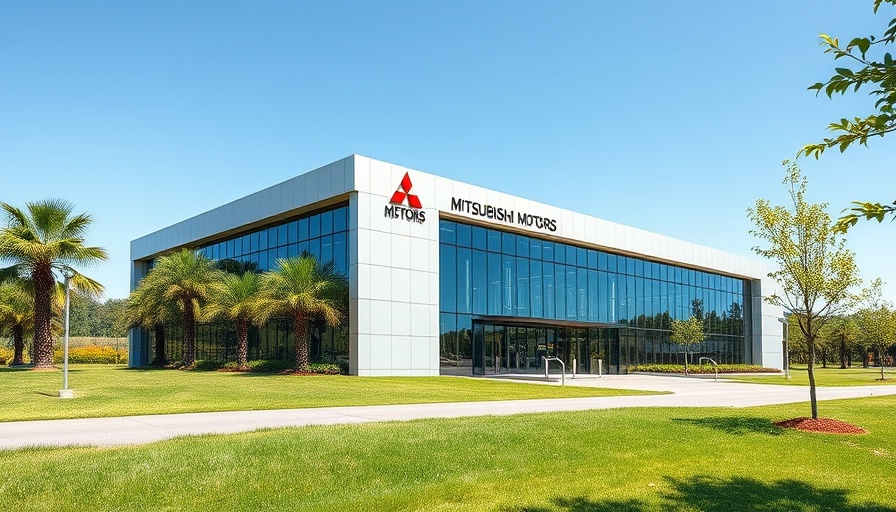
Mitsubishi's Price Increase: A Reaction to Tariffs
Mitsubishi Motors has announced a 2.1% average increase in vehicle prices across the United States, effective June 18, 2025. This decision reflects the impact of the recent 25% tariff imposed by President Donald Trump's administration on imported vehicles, which has altered the pricing dynamics in the car market. As the company resumes delivery of vehicles to dealers after a temporary halt, their retail strategy appears aligned with other automakers who are also adjusting prices in response to tariff pressures.
Impact on Consumers and Car Sales
This price hike comes despite Mitsubishi experiencing significant growth in sales, with a 26% increase in 2024 and further gains in early 2025. While existing vehicles in dealerships are not affected by these increases, potential buyers may need to reassess their budget for future purchases. The adjusted pricing structure is positioned as an essential step for Mitsubishi to remain competitive, reflecting overall industry trends.
Addressing the Future amidst Tariff Uncertainty
Mitsubishi's move is part of a broader response to ongoing tariff discussions, with the possibility of further increases looming on the horizon. Other automakers, including Subaru and Ford, have also felt compelled to raise prices under similar circumstances. It raises questions about how sustained economic policies can shape consumer behavior in the automotive sector, potentially leading to decreased sales or shifts in preferences toward more affordable or domestic models.
A Sustainable Approach for Mitsubishi
The company remains committed to innovation, investing in new models such as the 2025 Outlander and a forthcoming electric vehicle. This investment demonstrates Mitsubishi's desire to not only adapt to market pressures but also to embrace the future of automotive technology, appealing to environmentally conscious consumers who increasingly prioritize sustainability in their purchasing decisions.
 Add Row
Add Row  Add
Add 




Write A Comment